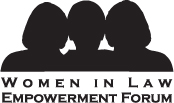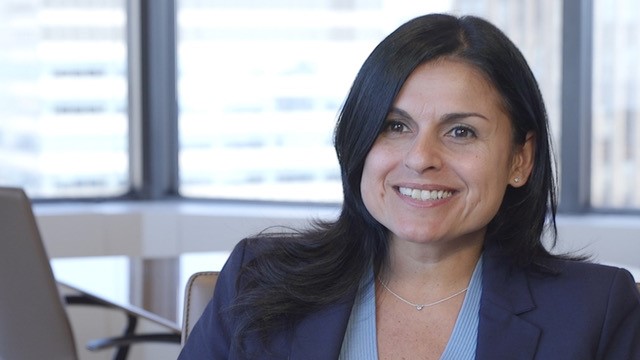In honor of International Women’s Day, ML Women hosted a virtual forum aimed at fostering the promotion of female lawyers throughout Latin America. More than 60 women from Morgan Lewis joined over 80 women from 15 Latin American countries in a discussion on how to help women advance in the legal field and break long-standing biases.
Moderated by Morgan Lewis partner Louise Skinner, the event featured insights from Morgan Lewis partners Melissa Rodriguez (pictured) and Michelle Pector, as well as Gabriela Roca from Guatemala and Marjorie Chorro from El Salvador, both of whom were mentored by firm Chair Jami McKeon as part of the Fortune–US Department of State Global Women’s Mentoring Partnership.
“Women have the power to not only support each other, but to make real change,” said McKeon during the event. “Events like this both fuel our resilience and raise awareness of the unique societal challenges and the misconceptions surrounding gender bias that are still widespread today.”
Roca and Chorro shadowed various members of Morgan Lewis in 2020 and 2015, respectively, as participants in the US State Department and Fortune’s Vital Voices Global Mentoring Program, in which McKeon has served as a mentor for the last six years. The purpose of that program is to both learn from and share best practices with emerging female leaders from around the globe.
When it comes to advancing equality and diversity policies in El Salvador, Chorro shared that “if this was a marathon, I think we would just be at the very beginning. Changing centuries of a culture, it takes time. And I think there’s a lot of resistance in some cases.” Chorro is the Director of the Department of Legal Studies at FUSADES (a Salvadoran Think Tank for Social and Economic Development) and a Member of the Board of Directors of Vital Voices El Salvador.
She has worked toward this change by prioritizing projects and cases that assist girls and women, including promoting compliance of public transportation laws that penalize sexual harassment.
“Women bring different perspectives to the table, and you can’t solve problems if you don’t understand them,” Chorro said. “That’s why we must keep trying to have more women as leaders and as board directors.”
Latin culture has not been prepared to see women in positions of power, Rocca said, so there often is not a support system from the government or the companies themselves. To change the narrative, it is key for women lawyers to illustrate their value in the office or boardroom, she said.
As the director of corporate affairs and sustainability at a large steel corporation in Central America, Roca said, “My responsibility being there is showing that having more women at the table will make the business better.”
There have been many studies that show diverse organizations are more successful and have a better workplace culture. But Pector emphasized that when furthering the advancement of women in the legal industry “there is no substitute for research and really understanding the industry of your clients. If you have ideas, speak up, because that’s when people can see and start recognizing the thought leadership and solutions you have.”
As a shift in equity and inclusion in Latin America takes place, multinational corporate clients are at the forefront of driving firmwide diversity efforts, swaying the legal community to do better in this space. While there may be similarities and commonalities between Latin American countries, the reality is that the social, economic, and philosophical underpinnings can be vastly different depending on country and region, Rodriguez noted.
“That often necessitates different and creative approaches to address diversity and inclusion with respect to gender identity in the legal profession there,” she said. “We need to move towards a global perspective of diversity, equity, and inclusion that accounts for regional and local cultures and specific diversity needs.”
Rodriguez added that this example of a Latin America Women Lawyer Network is one way to go about promoting respect and understanding of these differences.
“Working with networks like this one in the hopes of listening and educating ourselves can be the first step in devising a shared vision to address the values and behaviors we’re battling each day.”



